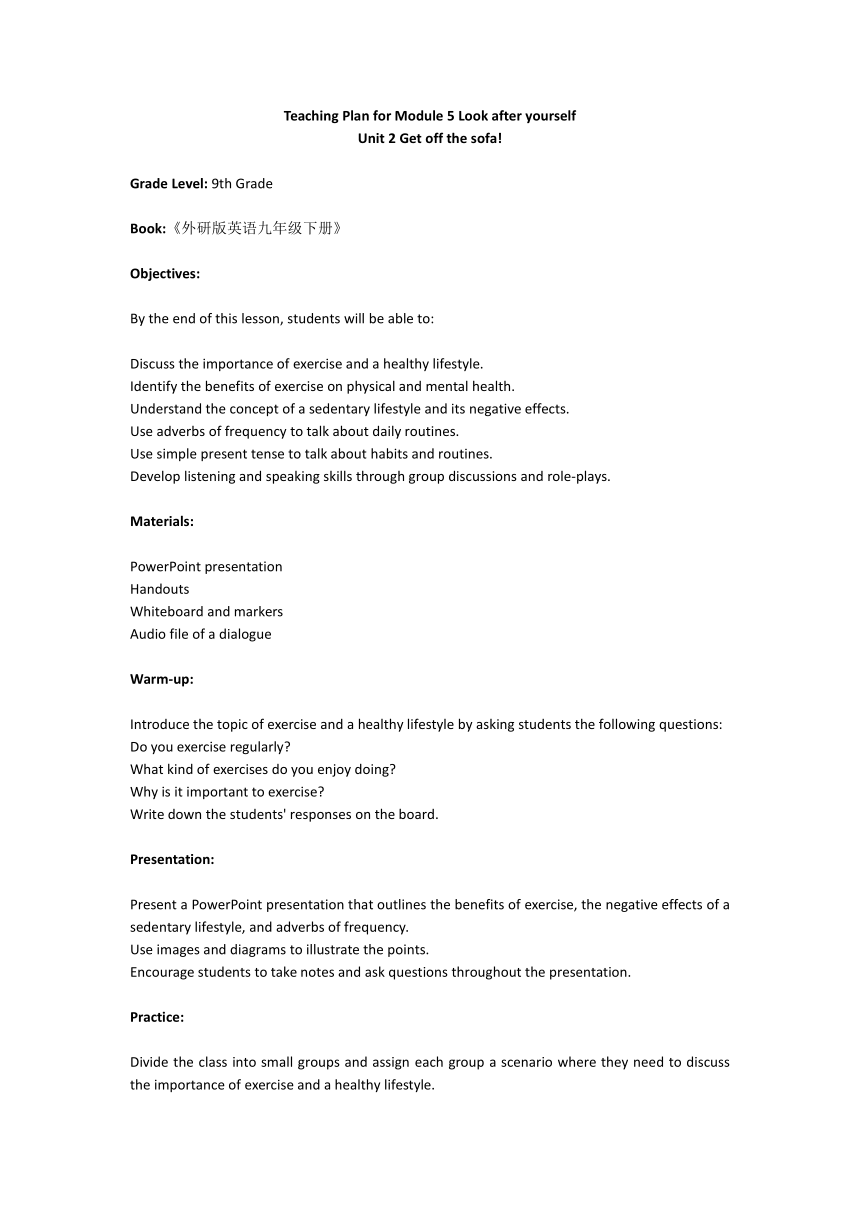
Teaching Plan for Module 5 Look after yourself Unit 2 Get off the sofa! Grade Level: 9th Grade Book:《外研版英语九年级下册》 Objectives: By the end of this lesson, students will be able to: Discuss the importance of exercise and a healthy lifestyle. Identify the benefits of exercise on physical and mental health. Understand the concept of a sedentary lifestyle and its negative effects. Use adverbs of frequency to talk about daily routines. Use simple present tense to talk about habits and routines. Develop listening and speaking skills through group discussions and role-plays. Materials: PowerPoint presentation Handouts Whiteboard and markers Audio file of a dialogue Warm-up: Introduce the topic of exercise and a healthy lifestyle by asking students the following questions: Do you exercise regularly What kind of exercises do you enjoy doing Why is it important to exercise Write down the students' responses on the board. Presentation: Present a PowerPoint presentation that outlines the benefits of exercise, the negative effects of a sedentary lifestyle, and adverbs of frequency. Use images and diagrams to illustrate the points. Encourage students to take notes and ask questions throughout the presentation. Practice: Divide the class into small groups and assign each group a scenario where they need to discuss the importance of exercise and a healthy lifestyle. Provide each group with a handout containing the scenario and questions to guide their discussion. Allow each group to present their discussion to the class. Example scenario: Your friend spends all day playing video games and watching TV. They never exercise or go outside. How would you convince them to be more active After the group presentations, play an audio file of a dialogue between two people discussing their daily routines. Provide students with a transcript of the dialogue and ask them to listen and read along. Ask students to identify the adverbs of frequency and the habits and routines discussed in the dialogue. Have students work in pairs to create their own dialogue discussing their daily routines using adverbs of frequency and the simple present tense. Example dialogue: A: How often do you go jogging B: I go jogging three times a week. How about you A: I rarely exercise. I spend most of my time sitting at my desk. B: You should try to be more active. It's important for your health. A: I know, but I just can't find the motivation to exercise. Closure: Summarize the main points of the lesson, emphasizing the importance of exercise and a healthy lifestyle. Ask students to reflect on their own daily routines and identify areas where they could be more active. Encourage students to set realistic goals for themselves and make small changes to their daily routines to incorporate more physical activity. Assessment: Monitor students' participation in group discussions and role-plays. Evaluate students' ability to use adverbs of frequency and the simple present tense correctly in their ... ...
~~ 您好,已阅读到文档的结尾了 ~~

